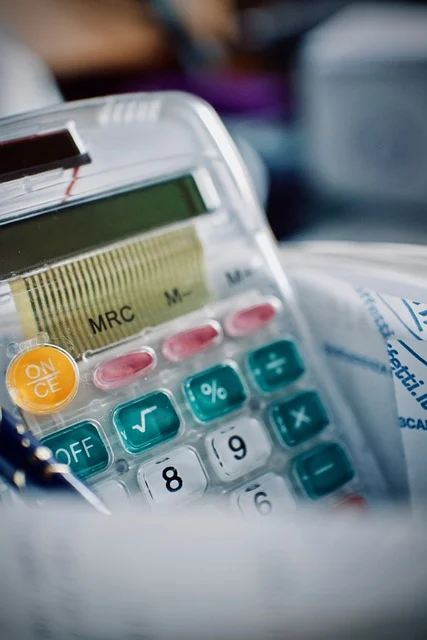UK Banking: Opening an Account as a Foreigner

The United Kingdom is one of the most popular destinations for expatriates, students, and professionals from around the world. Whether you are moving to the UK for work, study, or personal reasons, one of the first and most important tasks you will need to undertake is opening a bank account. Having a UK bank account is essential for managing your finances, receiving your salary, paying bills, and even renting accommodation. However, the process of opening a bank account in the UK as a foreigner can be complex and requires careful preparation. This article will guide you through the process, providing detailed information and tips to make the experience as smooth as possible.
Why Do You Need a UK Bank Account?
Before diving into the process of opening a bank account, it’s important to understand why having one is crucial:
- Receiving Salary: If you are working in the UK, most employers will require you to have a UK bank account to deposit your salary.
- Paying Bills: Utility bills, rent, and other expenses are often paid via direct debit or standing order, which requires a UK account.
- Building Credit History: A UK bank account is the first step toward building a credit history, which is essential for obtaining loans, mortgages, or credit cards in the future.
- Convenience: A local bank account makes it easier to manage your finances, withdraw cash, and make payments without incurring high international transaction fees.
Types of Bank Accounts in the UK
UK banks offer a variety of accounts tailored to different needs. As a foreigner, you will likely be interested in the following types of accounts:
- Current Account: This is the most common type of account, used for everyday transactions such as receiving your salary, paying bills, and making purchases. Most current accounts come with a debit card and online banking facilities.
- Basic Bank Account: If you have a poor credit history or no credit history in the UK, you may be eligible for a basic bank account. These accounts offer limited features but are easier to open.
- Savings Account: If you want to save money and earn interest, a savings account is a good option. Some savings accounts require you to have a current account with the same bank.
- Student Account: If you are a student, many banks offer accounts with special benefits such as interest-free overdrafts and discounts.
Steps to Open a Bank Account in the UK as a Foreigner
Opening a bank account in the UK as a foreigner involves several steps. Below is a detailed guide to help you navigate the process:
1. Choose the Right Bank
The UK has a wide range of banks, including high-street banks like Barclays, HSBC, Lloyds, and NatWest, as well as digital banks like Monzo and Revolut. Consider the following factors when choosing a bank:
- Fees: Some banks charge monthly fees for maintaining an account, while others offer free accounts.
- Accessibility: Check if the bank has branches or ATMs near your location.
- Services: Look for additional services such as international money transfers, mobile banking, and customer support in your language.
2. Gather the Required Documents
UK banks have strict identification and verification requirements. The documents you need may vary depending on the bank, but generally, you will need:
- Passport: A valid passport is the most commonly accepted form of identification.
- Proof of Address: This can be a utility bill, rental agreement, or official letter from your employer or university. If you have just arrived in the UK and do not have a proof of address, some banks may accept a letter from your embassy or a temporary address.
- Visa or Residence Permit: If you are not a UK citizen, you will need to provide proof of your legal status in the country.
- Proof of Income or Employment: Some banks may ask for a letter from your employer or proof of enrollment if you are a student.
3. Book an Appointment
Most banks require you to book an appointment to open an account. You can do this online or by visiting a branch. During the appointment, a bank representative will guide you through the process and verify your documents.
4. Complete the Application
The application process usually involves filling out a form with your personal details, such as your name, address, and contact information. You may also need to answer questions about your employment status and financial history.
5. Wait for Approval
Once you have submitted your application, the bank will review your documents and conduct a credit check. This process can take anywhere from a few days to a few weeks. If your application is approved, you will receive your account details, debit card, and other relevant information by mail.
Challenges Faced by Foreigners
While the process of opening a bank account in the UK is straightforward for residents, foreigners may face certain challenges:
- Proof of Address: Many foreigners struggle to provide a proof of address, especially if they have just arrived in the UK. Some banks may accept alternative documents, but it’s best to check with the bank in advance.
- Credit History: If you are new to the UK, you will not have a credit history, which may make it harder to open certain types of accounts.
- Language Barrier: While most bank staff speak English, some foreigners may find it difficult to understand the terminology or requirements. Consider bringing a translator or a friend to assist you.
Tips for a Smooth Experience
- Research in Advance: Before arriving in the UK, research the banks and their requirements. This will save you time and effort.
- Use Digital Banks: Digital banks like Monzo, Revolut, and Starling often have simpler requirements and faster application processes compared to traditional banks.
- Start Early: Begin the process as soon as possible to avoid delays, especially if you need the account for work or study.
- Keep Your Documents Ready: Ensure that all your documents are up-to-date and easily accessible.
- Seek Help if Needed: If you encounter difficulties, don’t hesitate to ask for help from your employer, university, or a local support organization.
Alternatives to Traditional Banks
If you are unable to open a traditional bank account, consider the following alternatives:
- Digital Banks: As mentioned earlier, digital banks often have fewer requirements and can be a good option for foreigners.
- Post Office Accounts: The UK Post Office offers basic banking services, including current accounts and savings accounts.
- International Banks: If you already have an account with an international bank that operates in the UK, you may be able to open an account with them more easily.




